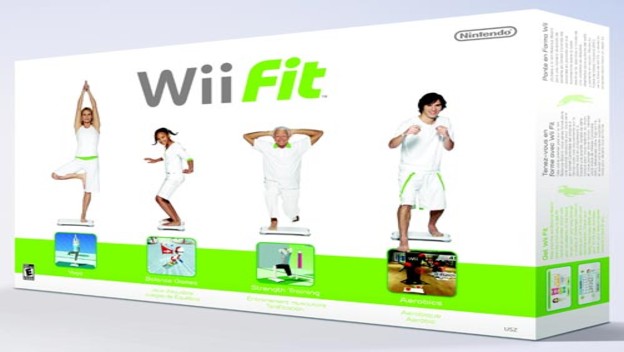A new branch of medical study is looking into the possible benefits that playing games could have on the body and mind. It’s not just looking at the games that exist, but rather is looking into designing games that are not only fun, but also act as physical and/or psychological therapy. Other games are also being designed for disease self-management, health education, increase of physical activity, and even a sort of anesthesia, which provides distraction from chronic pain. Of course, we have seen this sort of game design before (who else here remembers Captain Novolin?) but doctors now think that playing the right games can get us healthy and let us stay healthy.
This news comes from a WCAX report on recent developments in healthcare gaming. The idea is to take elements of other successful games, such as challenge, competition, reward, status, and identity (their words, not mine) and implement them in games that stress healthy behaviors. A straightforward example of this is something like Wii Fit , which makes no attempt to hide its status as an exercise tool, but a more indirect application might be seen in Dance Dance Revolution , which has a completely different goal but forces you to be active anyway.
The article says that 97% of kids aged 12-17 play video games, though those numbers don’t quite synch up with the latest ESA findings. If this is true, however, games can be a very useful tool in helping children live healthy lifestyles. However, games are also being used to help senior citizens improve their quality of life. One particular game that was mentioned was the Music Glove, a glove that is meant as a sort of physical therapy for survivors of stroke or other medical incidents that might inhibit the use of your hands.
The glove essentially lets you play a Rock Band -style game. However, instead of jamming out on a plastic instrument, Music Glove asks you to tap your fingers with your thumb. These are the same exercises that you would normally get in a physical therapy pamphlet, but when doing these exercises with no game surrounding them, people usually get bored and can slack off with their therapy. Music Glove gives you a goal to strive for, which is a lot different than simply sitting through boring daily exercises.
Video games can also help you to improve your fitness, balance, and coordination. I can speak to this from personal experience. When I was a child, I used video games as a form of physical therapy in order to improve my hand-eye coordination. If you are interested, you can read my story here. The story cites the Kinect and other motion based games as being clinically proven to aid in developing coordination.

WCAX continued by offering a full list of games with proven medical benefits, from gamifying meditation to aid with your stress, to maintaining your diet. You can read the full list below.
- Seniors can enjoy interactive physical therapy and fitness with “exergaming” using tools like Wii and Kinect. A clinical study found that Wii was successful in helping seniors get increased physical activity, all in the comfort of their own home. And we’re seeing neat new tools like MusicGlove, which is a kind of Guitar Hero for stroke patients https://www.flintrehabilitation.com/
- For stressed out, busy adults, there is Muse — http://www.choosemuse.com/ — which turns meditation into a game. The device measures brainwaves, and then attempts to calm themselves through certain relaxation exercises. It helps you get a grip and relax. If fitness relaxes you, ZombieRun — https://www.zombiesrungame.com/ — might be a good choice! It taps your intrinsic motivation to get into running by using badges and a story as extrinsic motivation. You want to start running, which is hard, but you also want to find out what happens in the narrative. Even your FitBit can be used to tap into fun competitive fitness games with games like FitRPG, a role-playing game.
- And if you’re kids’ food choices need fixing, there’s Fooya, a fun and competitive way for kids to have safe food fights– http://www.friendslearn.com/. During a clinical trial, children who played the game made significantly more healthy choices of snacks compared to children who did not. Other games for kids: Play2Prevent — http://www.play2prevent.org/our-games/ — offers games that focus on risk prevention, well-being, and social intelligence
One of the big challenges that medical games encounter, however, is a budget that is dwarfed by triple A budgets for similar games. The Music Glove , for example, looks like a simple flash game when compared to Rock Band and Guitar Hero. The focus, of course, is always medicine first, but with a little bit more money behind them and some interesting design work, these health-focused games could be as fun as the games we play for the sake of entertainment.
What do you think? Can video games make us healthy? Are they the next step in physical therapy? Let us know in the comments.
